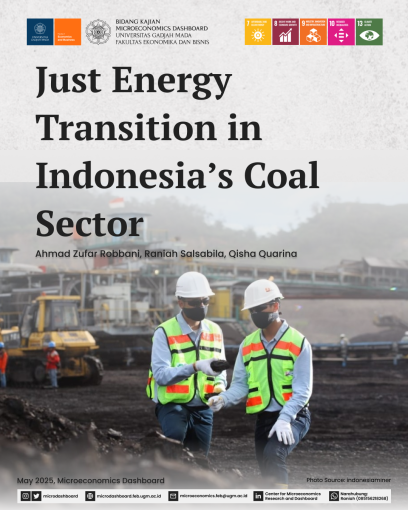
Author: Ahmad Zufar Robbani, Raniah Salsabila, Qisha Quarina
May 2025
Indonesia’s commitment to achieving net-zero emissions by 2060 or earlier places the coal sector at the heart of the nation’s energy transition. As one of the main contributors to national GDP, state revenue, and employment, phasing out coal is not just an environmental milestone—it’s a socioeconomic turning point. Our latest study reveals that while most coal workers belong to the highest wage deciles, many are still vulnerable due to fixed-term contracts that limit access to social protection. The transition is projected to cause widespread job losses across upstream and downstream industries, with regions like East Kalimantan and South Sumatra likely to face the greatest impact.
So, what does this mean for Indonesia’s coal workforce? How can the government ensure a fair and just transition for all? Find out the key insights and data in this month’s infographic!
[embeddoc url=”http://microdashboard.feb.ugm.ac.id/wp-content/uploads/sites/1693/2025/05/Just-Energy-Transition.pdf”]
